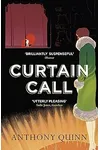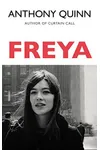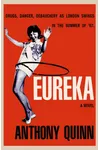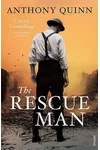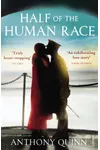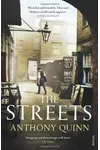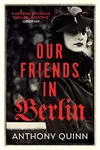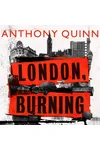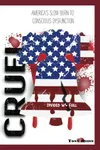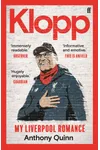Picture a British storyteller who breathes life into the past with vivid prose and heartfelt characters—meet Anthony Quinn! Born in Liverpool in 1964, this former film critic turned historical novelist has crafted a literary legacy with works like The Rescue Man and Curtain Call. With a knack for weaving meticulous research into gripping narratives, Quinn captures the human spirit against richly drawn historical backdrops, making him a standout in contemporary British literature.
From his Oxford days to judging the prestigious Man Booker Prize, Quinn’s journey is as captivating as his stories. Let’s dive into the world of a writer who turns history into unforgettable tales!
The Making of Anthony Quinn
Anthony Quinn was born in Liverpool, a city that would later inspire his debut novel. Educated at St Francis Xavier’s College and Pembroke College, Oxford, where he studied Classics, Quinn’s love for storytelling took root early. After graduating in 1986, he moved to London, working at Zwemmer’s bookshop and penning book reviews for The Independent. His early career as a journalist, interviewing literary giants like John Updike and Ian McEwan, honed his sharp eye for narrative detail. By 1998, he was The Independent’s film critic, a role he held until 2013, blending his passion for stories across mediums.
Anthony Quinn’s Unforgettable Stories
Quinn’s novels are a masterclass in historical fiction, blending meticulous research with emotionally resonant characters. His debut, The Rescue Man (2009), set in Liverpool during World War II, follows historian Tom Baines navigating love and loss amid the Blitz. The novel’s vivid portrayal of the city’s architecture and wartime spirit earned the Authors’ Club Best First Novel Award. Curtain Call (2015), set in 1930s London, weaves a thrilling tale of murder and societal tensions, earning a spot in Waterstones’ Book Club and inspiring the 2024 film The Critic.
Half of the Human Race (2011) explores love and suffrage in Edwardian England, showcasing Quinn’s knack for tackling social justice through intimate human stories. Freya (2016), a Radio 2 Book Club pick, follows two aspiring writers navigating post-war challenges, highlighting Quinn’s ability to craft strong, complex female characters. His lyrical prose and focus on themes like love, resilience, and cultural change make his works both immersive and thought-provoking.
Quinn’s style is defined by its elegance and depth. He doesn’t just tell stories—he recreates eras, from the smoky theaters of 1930s London to the rubble-strewn streets of wartime Liverpool. His characters, often flawed yet relatable, grapple with personal and societal conflicts, inviting readers to reflect on the past’s relevance today.
Why Anthony Quinn Matters
Anthony Quinn’s impact lies in his ability to make history feel alive and urgent. His novels don’t just entertain—they illuminate the human condition, exploring how love, betrayal, and courage shape lives across turbulent times. By spotlighting lesser-known historical moments, like Liverpool’s wartime resilience or the suffrage movement, Quinn bridges past and present, earning praise from readers and critics alike. His work as a Man Booker Prize judge in 2006 and his transition to novelist underscore his deep influence on British literature.
Quinn’s storytelling resonates globally, with adaptations like The Critic bringing his narratives to new audiences. His legacy is one of empathy and artistry, inviting readers to see history through the eyes of those who lived it.
- Born: October 22, 1964, Liverpool, England
- Key Works: The Rescue Man, Curtain Call, Half of the Human Race, Freya
- Awards: Authors’ Club Best First Novel Award (2009)
- Notable Role: Man Booker Prize judge (2006)
Ready to step into the past? Snag The Rescue Man or Curtain Call and lose yourself in Anthony Quinn’s evocative historical worlds!
